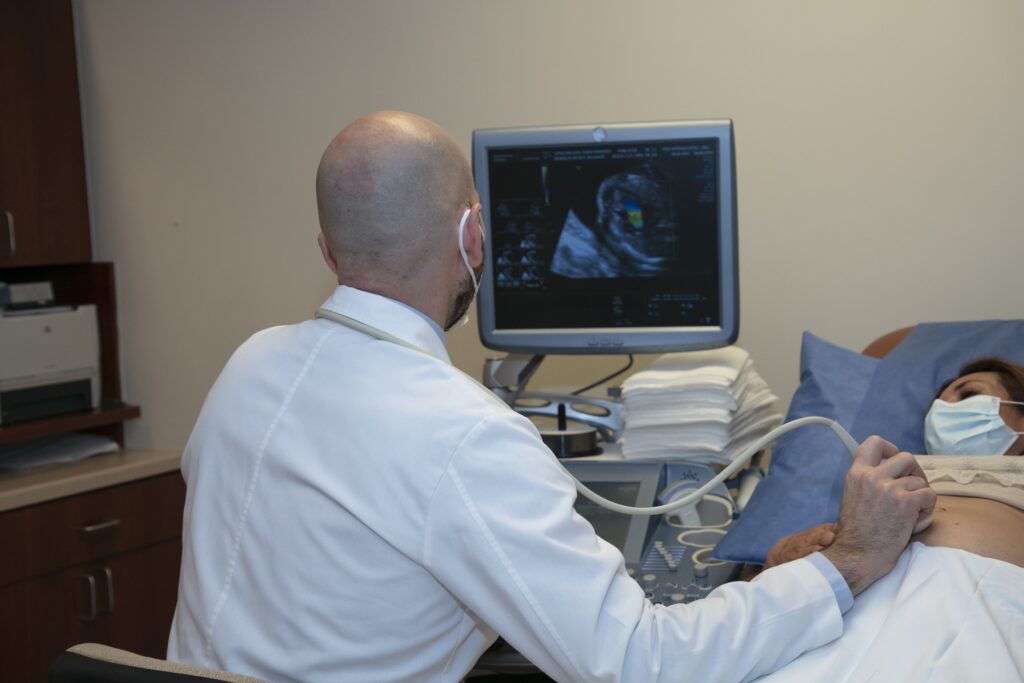Key points:
- The alert level in high-risk pregnancy is very broad.
- Not all high-risk pregnancies are dangerous, but it is necessary to keep track of this.
- There are high-risk pregnancies that can be predicted and others that can occur at any moment.
Throughout the pregnancy, situations can arise that make a pregnancy high-risk, even before it happens or until a few days after it ends.
Although the term high-risk pregnancy may sound very alarming at first, the reality is that it is a concept used to talk about a pregnancy that has warning signs or some risk for the baby and the mother, unlike a conventional pregnancy.
The risk level is highly variable and, in some cases, what will be needed are normal check-ups as would be done in any pregnancy, but in others, it will be necessary to have very close monitoring with specialists since the baby’s or the mother’s life may be at risk.
There is a wide variety of factors that can trigger a high-risk pregnancy, the most frequent are:
- Women under 16 years old or over 35.
- Consuming products such as cigarettes, alcohol, or other types of drugs.
- Being very underweight or overweight.
- Living with some type of health problem such as high blood pressure, diabetes, malnutrition, asthma, epilepsy, etc.
- Suffering from a disorder during pregnancy such as abnormal implantation of the placenta, suffering acute bleeding, anemia, etc.
- Developing a complicated infectious disorder.
- Having a history of two or more previous abortions, a premature birth, or that the baby was born with a small weight or size.
- Twin or multiple pregnancies.
- Traumatisms such as accidents, falls, or blows.
Due to all these variables, the main recommendation for women is that, once they know they are pregnant, they begin their check-ups with the obstetrician. In some cases, the risk factors are already present in the mother and could lead to a high-risk pregnancy, or in others, they could appear during the pregnancy and it is important to detect them promptly.
In addition to these factors, there are other signs you should pay attention to:
During the first trimester, the threat of abortion and the problems associated with urinary tract infections or any kind of infections could raise alerts. If you have vaginal bleeding or abundant liquid discharges, it is important to see your gynecologist to get checked.
Other warning signs in the second half of the pregnancy are intense headaches, a feeling of intense colic, or contractions.
After the baby’s birth, the mother must continue with her postpartum check-ups, since many factors could affect her health, such as the presence of anemia or the appearance of an infectious process, among others.
Each pregnancy is unique and the risk level will be independent in each case. For situations where the woman has a chronic condition, her pregnancy could be classified as high risk, however, with adequate follow-up there is a high probability of carrying it without any problems.
At ABC Medical Center’s Obstetrics Center, we can provide you with specialized care. Contact us! We have incubators, radiant warmers, conventional and high-frequency fans, equipment that allows for minimally invasive care, as well as nurses and doctors specialized in newborn care that will provide you the safety of being in the right place in case of any complication.
In addition, at ABC Medical Center we have a 3C classification neonatal unit assigned to the units that have the most complete and sophisticated equipment for newborn care.
Fuente:
Dr. Miguel Chaya Hajj – Gynecologist and obstetrician at ABC Medical Center

